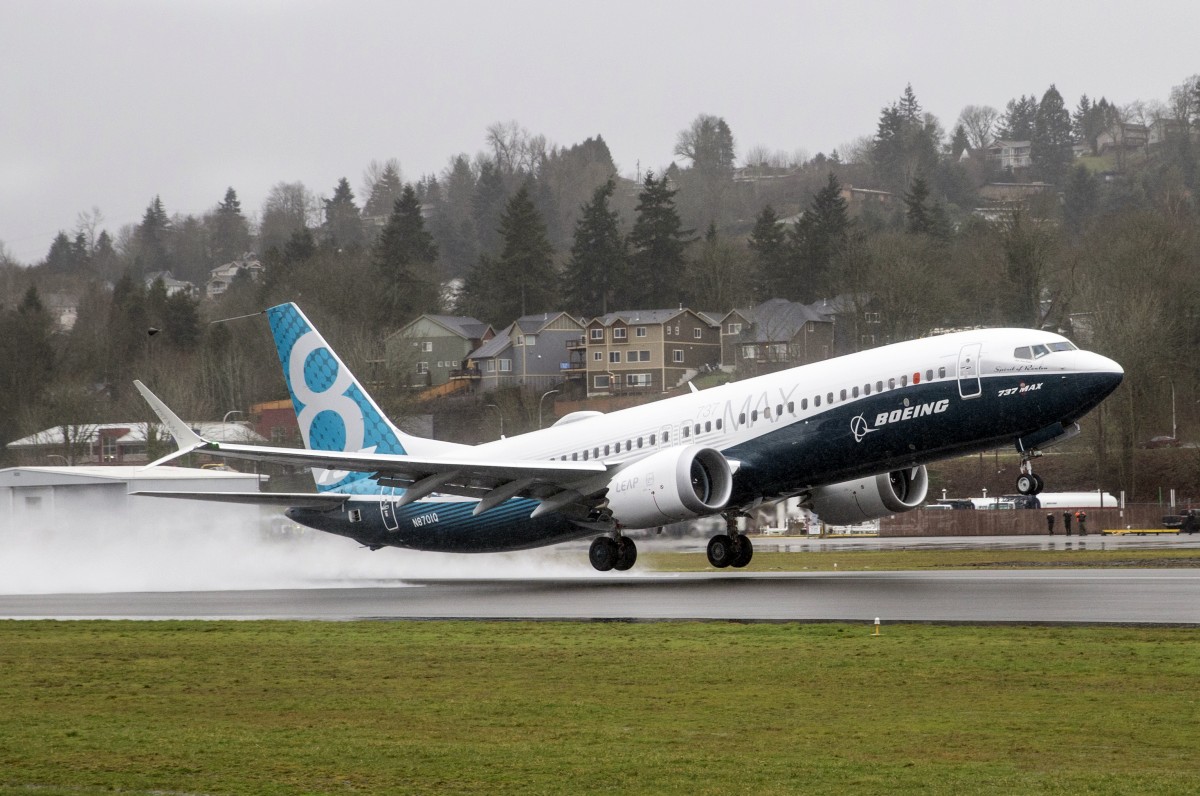American Airlines joined Southwest in extending flight cancellations into August. The two airlines say about 275 flights a day will be cancelled during the crucial summer travel period.
No news yet on when the MAX, grounded since mid-March, will fly again as Boeing feverishly tried to ensure their software fix will eliminate any future problems.
American also says it will add more simulator training for their MAX 8 pilots after weeks of maintaining this was not necessary. A Wall Street Journal report says other airlines have not indicated they will add the additional training as of yet.
Meanwhile, U. S. President Donald Trump felt it necessary to send a Tweet out that said this: “What do I know about branding, maybe nothing (but I did become President!), but if I were Boeing, I would FIX the Boeing 737 MAX, add some additional great features, & REBRAND the plane with a new name. No product has suffered like this one. But again, what the hell do I know?”
Boeing’s CEO Dennis Muilenberg spoke at the Leadership Conference at the George W. Bush Presidential Center in Dallas on April 11, and said the following: “Our values are at the very core of everything we do. Yet, we know we can always be better, and these recent accidents have intensified our commitment to continuous improvement as we design, build and support the safest airplanes in the sky. That’s our responsibility as a leader in the aerospace industry. That’s what we do at Boeing. We own it. From the days immediately following the Lion Air accident, our top engineers and technical experts have been working tirelessly in collaboration with the Federal Aviation Administration and our customers to finalize and implement a software update that will ensure accidents like these never happen again. The update will make the 737 MAX even safer by preventing erroneous angle of attack sensor readings from triggering the Maneuvering Characteristics Augmentation System, or MCAS, something that initial investigation reports indicate occurred in both MAX accidents, as one link in a longer chain of events. We know we can break this chain link. It’s our responsibility to eliminate this risk. I joined our Boeing test pilots last week aboard a 737 MAX flight for a demonstration of this updated software. During the flight, the crew performed different scenarios that exercised the software changes in multiple flight conditions. The software update functioned as designed, and I was impressed by the work and professionalism of our team. Overall, our team has made 96 flights totaling a little over 159 hours of air time with the updated software. They will conduct additional test and production flights in the coming weeks as we continue to demonstrate that we’ve identified and met all certification requirements. We look forward to completing near-term milestones on the path to final certification.”
The Federal Aviation Administration (FAA) held a meeting on April 12 in Washington, D.C. with safety representatives of the three U.S.-based commercial airlines that have the Boeing 737 MAX in their fleets (American, Southwest, United), as well as the pilot unions for those airlines.
The three-hour meeting opened with remarks from Acting Administrator Dan Elwell and covered three major agenda items: a review of the publicly available preliminary findings of the investigations into the Lion Air and Ethiopian Airlines accidents; an overview of the anticipated software enhancements to the MCAS system; and, an overview of pilot training. Each presentation corresponding to the agenda, delivered by FAA subject matter experts, allowed for an open exchange between all participants.
In his opening remarks, Elwell said the meeting was a listening session for the FAA to hear from the participants for a fuller understanding of the safety issues presented by the Boeing 737 MAX. Elwell said that he wanted to know what operators and pilots of the 737 MAX think as the agency evaluates what needs to be done before the FAA makes a decision to return the aircraft to service. Elwell emphasized that the same level of transparency, dialog, and all available tools that have created aviation’s incomparable safety record also will apply to the FAA’s ongoing review of the aircraft’s return to service. Elwell said that the participant’s operational perspective is critical input as the agency welcomes scrutiny on how it can do better. Elwell also said the agency is committed transparency on its work toward their decisions related to the aircraft.
No date has been given as to when Boeing will release the software update to the B737 MAX MCAS system.
